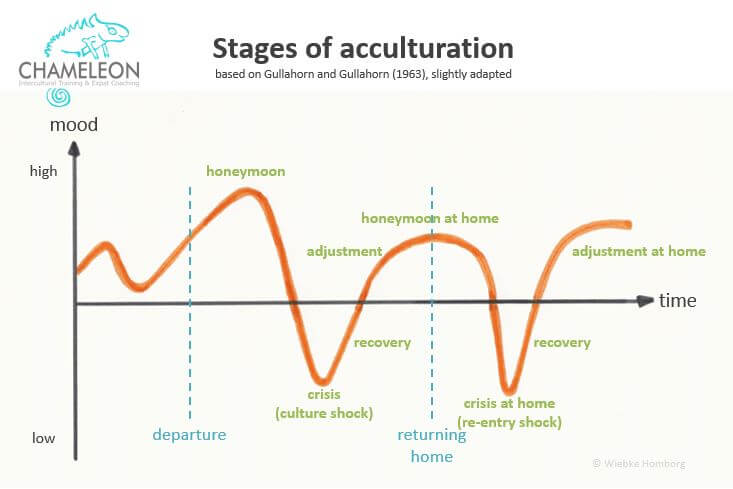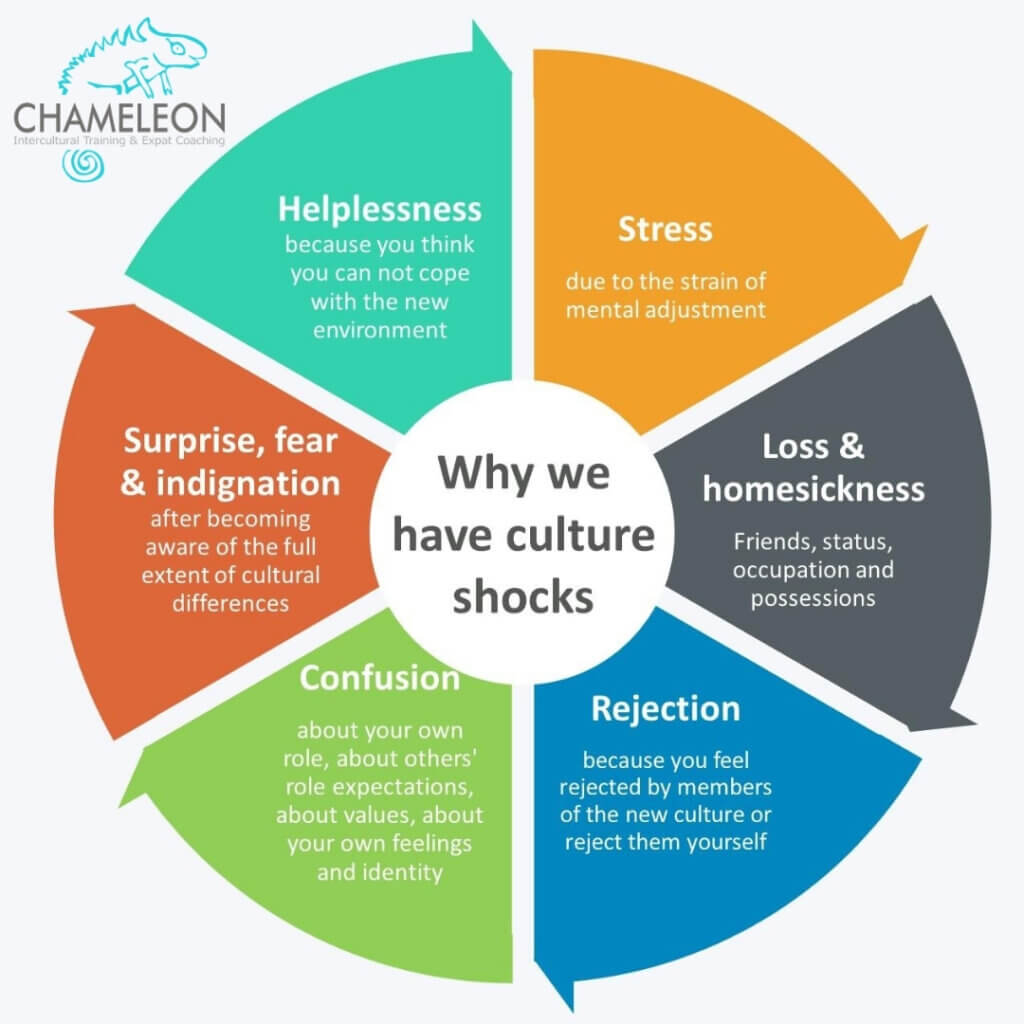
But why do we have these painful culture shocks?
Take a look at the six most common causes for culture shock. Which of the 6 areas has affected you most? How did you overcome them? What was your coping strategy?  As a general rule, the larger the cultural distance – meaning the extent of differences in values and communication styles between the two cultures – the bigger the shock. But it can also hit you, when you expect two cultures to be more similar than they actually are. We experience a cognitive dissonance when our values and beliefs clash with those of the new culture. This understandibly causes psychological stress.
As a general rule, the larger the cultural distance – meaning the extent of differences in values and communication styles between the two cultures – the bigger the shock. But it can also hit you, when you expect two cultures to be more similar than they actually are. We experience a cognitive dissonance when our values and beliefs clash with those of the new culture. This understandibly causes psychological stress.
What helps? Coping strategies for culture shock and adaptation difficulties:
- don’t panic, nearly everyone has some form of culture shock – it‘s absolutely normal!
- stay in touch with your support network (family and friends)
- make new contacts to locals and other expats
- get out and explore your new city and country
- get involved, join a club, practice your hobbies
- always expect the unexpected
- talk with other expats and get rid of that exasperation
- cultivate your favorite customs from home (cook favorite dish, etc.)
- do not underestimate the climatic adjustment
- have faith and give yourself time
Remind yourself of all the benefits of your journey:
- deeper insights into the culture, broadened horizon and intercultural competence
- personal development: increased self-esteem, more optimistic attitude, flexibility, more serenity and resilience
- new friends
- travel, experiences and adventures
- linguistic proficiency
As your intercultural trainer and coach, my aim is to raise awareness that culture shock is real and why it happens. I work with my clients to identify the areas that are causing distress and help them develop healthy coping strategies to move through this phase with more ease and grace. Check out this YouTube video where I share my own culture shock and coping strategy around punctuality in Chile.

